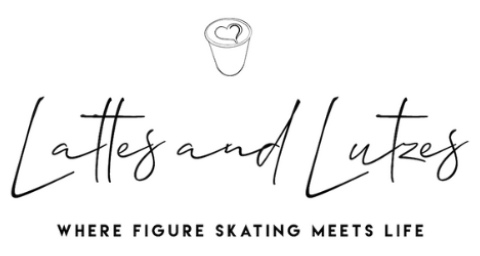Rebuilding, Rebalancing, and Staying Strong on the Ice

Adult figure skaters know the grind: early mornings, late evenings, juggling work, life, and lutzes. We’re committed, often under-coached, and—if we’re being honest—a little too good at ignoring that nagging twinge in the lower back or the click in the hip. But if you’re experiencing the same injuries over and over again, your body’s not being dramatic. It’s asking you to listen.
I sat down with certified athletic trainer and strength & conditioning specialist Beckie Brannen, who’s helped me personally navigate recurring issues with my SI joint, to talk about figure skating injury prevention—and what it really takes to stay strong, mobile, and hopefully injury-free as we skate through adulthood.
Why Do Some Injuries Keep Coming Back?
Repetitive motion is a hallmark of on-ice training but it’s also a risk. “It’s the same jump, same entrance, same edge, over and over,” Beckie explains. “And that means the same joints and muscles are getting loaded in the exact same way, day after day. Overuse isn’t just overdoing it once—it becomes a pattern your body can no longer compensate for.”
For adult skaters in particular, this pattern often shows up in the hips and lower back.
“You have one side doing all the pushing, and the other compensating,” she says. “Eventually, the system breaks down.”
My SI Joint Was the Symptom—Not the Cause
Using my own case as an example, Beckie helped me uncover that the recurring pain in my sacroiliac (SI) joint wasn’t the root issue. “It was your hamstrings and hip flexors on opposite sides creating tension that essentially locked that joint up,” she explains. “We had to rebalance the system and not just treat the pain.”
That’s a critical shift for skaters who feel “out of alignment” often. “The problem isn’t always where you feel it,” Beckie says. “Our goal is to trace the pattern back to its source—then build strength and mobility around it.”
Why Individualized Programs Matter (Especially for Adults)
While kids recover quickly and can sometimes skate through imbalances, adults can’t afford to. Our lives are often more sedentary, we spend too much time sitting through Zoom calls or hunched over laptops. We get less time on the ice and typically don’t supplement our training with gymnastics or dance. Plus let’s be real—corporate jobs don’t come with recess or lunch breaks.
That’s why Beckie builds customized programs for her adult athletes. “We look at your specific patterns—your strength, your lifestyle, your schedule—and build from there. What works for one skater might flare up an injury in someone else.”
Strength = Stability = Longevity
Beckie is clear: if there’s one thing every skater should invest in, it’s core strength. “Your core connects your upper and lower body. When it’s weak, something else picks up the slack—usually your lower back.”
She defines the core as everything from the mid-quads to the ribcage: glutes, obliques, and stabilizers. “You’re doing a spiral? Your obliques have to hold that entire line steady. If they’re not strong enough, something else—like your lumbar spine—will try to help. That’s when pain creeps in.”
Mobility vs. Stability—Which One Is Most Important?
Both. Always.
“Mobility is the ability to get into the position. Stability is the ability to stay there,” Beckie explains. Adult skaters who spend most of their day sitting or moving predictably, often lose both. That’s why her programs include hip openers, spinal rotation drills, and unilateral strength work. “When you skate, you’re not just moving forward—you’re twisting, gliding, holding. If your body can’t move and hold in three dimensions, it’s going to find workarounds. Those workarounds often lead to injury.”
What Should Rest Actually Look Like?
Spoiler: it’s not laying motionless on the couch with an ice pack. “Active recovery is the key,” Beckie emphasizes. “Swim some gentle laps. Take a slow bike ride. Walk. Move enough to pump blood through your system—but not enough to create new fatigue.”
And don’t underestimate small movement breaks during the day. “Stretch while you’re reading emails. Get up for a one minute water break. Those little changes add up and make a difference.”
The Toolkit: Beckie’s Off-Ice Essentials
Beckie recommends keeping things simple but effective:
- Mini resistance bands for glute activation
- BOSU balls for ankle and core stability
- Foam rollers and yoga blocks for mobility
- Single-leg balance work to mimic on-ice demands
- Isometric holds (think spirals and spin positions) to build sustained control
“You don’t need a full gym,” she says. “Just tools that help mimic the demands of skating—especially balance, one-sided strength, and endurance.”
Final Words: Listen to Your Body
“The biggest advice I’d give adult skaters is this: rest isn’t weakness. It’s what keeps you skating,” Beckie says. “If something twinges—pause. Stretch. Adjust. Don’t push through just to prove something.”
Skating is demanding. So is adulting. The strongest athletes aren’t the ones who power through pain—they’re the ones who train smart, rest deliberately, and pay attention when their body whispers (instead of waiting for it to scream).





